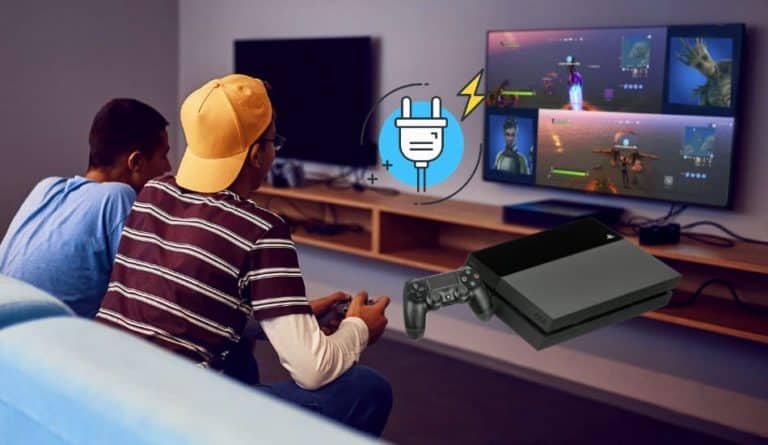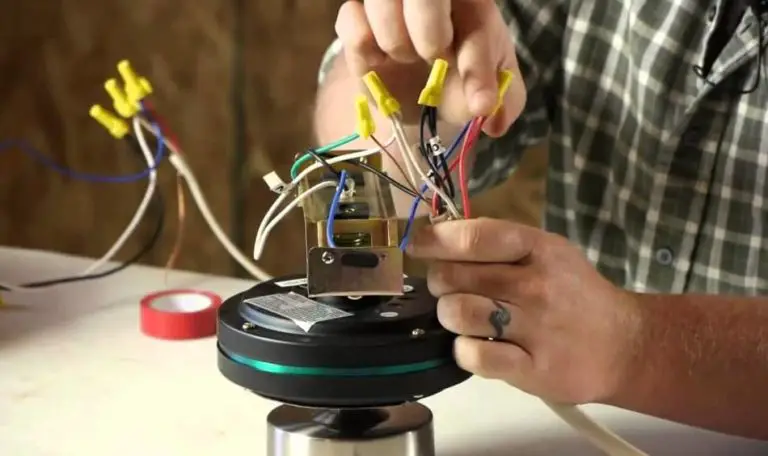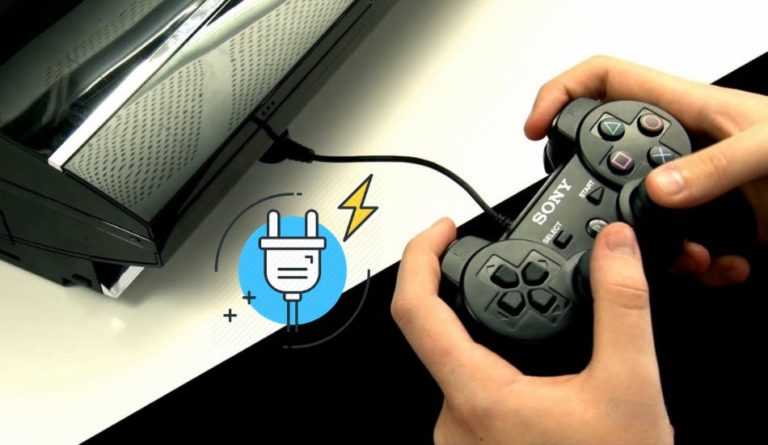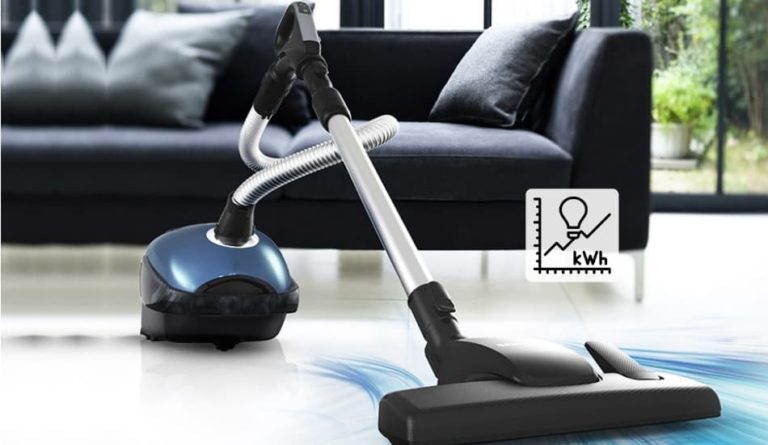How Much Electricity (Energy) Does a Water Heater Use?
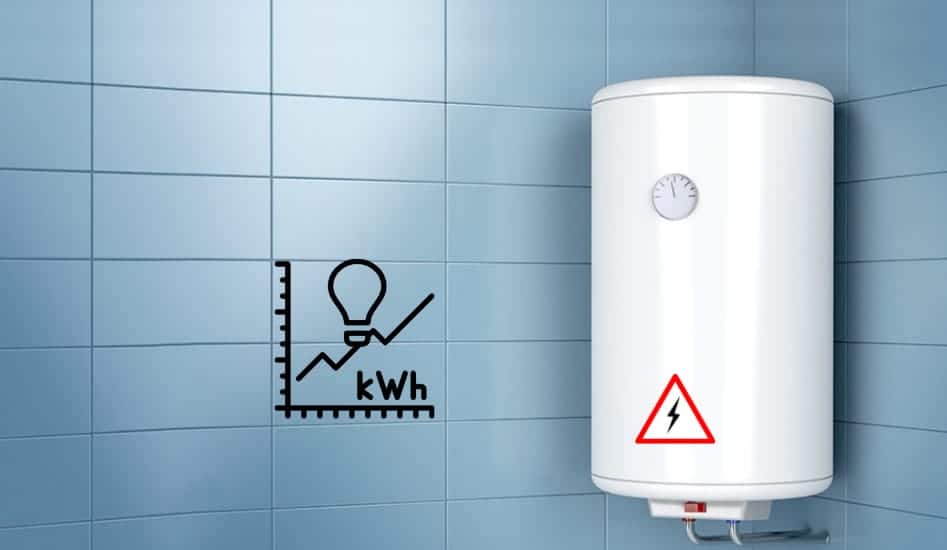
Electricity consumption is a big issue in many households today. The Department of Energy states that water heating systems are the second biggest user and average 18% of electric costs, but they can be reduced by choosing an energy-efficient system.
An electric water heater is typically running for 3 hours a day to heat the water in your home so that you can enjoy hot showers and baths. What affects electricity consumption on water heaters is not just the size of the tank that matters, but also the insulation has a big impact on energy usage. In this article, we’ll talk about that. So, let’s start!
Table of Contents
How Much Electricity (Energy) Does a Water Heater Use?
So How Much Electricity (Energy) Does a Water Heater Use? Most water heaters typically run for 3 to 5 hours per day. The average wattage of an electric water heater is around 4000 watts, which means if it runs for 3 hours a day at a price of $.23 per kWh, it will cost you $2.76 per day, about $74.80 per month and $861 per year.
The amount of electricity used by an electric water heater depends on the size of the water tank and its energy factor (EF). An EF rating measures how much hot water can be produced from a unit quantity. For example, a 30-gallon tank with an EF rating of 0.7 will produce 21 gallons per day by using 10 kilowatt hours (kWh) per day (21 ÷ 10 = 2.1).
If your household uses more than 2 kWh/day to meet its hot water needs, then you should consider replacing your current electric storage tank with one that has higher efficiency ratings, such as 1.6 or greater for standard models or 1.8 or greater for high-efficiency models designed specifically for use with solar thermal systems and photovoltaic panels.
Two pieces of information are necessary to calculate the amount of power needed to heat up a hot water tank. The first is how many liters your tank holds. Second, what temperature rise do you want it heated at? So, let’s take a look at a more detailed calculation.
Calculating Energy Usage Of Water Heater

The average water heater runs only three hours a day. If you use 50 gallons, which is 5500 watts of power, and your electricity rate is $0.13 per kilowatt-hour, it will cost about $781 to operate the water heater yearly! Therefore, it’s important for people who have one in their homes to know how much it will cost them.
The formula for calculating the energy usage (in kW) of a water heater for a volume of water by specific temperature in 1 hour is the following:
The volume of Water Heater x Hours x temperature rise / 3412 = Power
If the tank is 100 liters and we are rise the temperature from 10 C up to 65 C, then the formula will be:
- 100 x 4 x 55 / 3412 = 6.4 kW
- By this, you will need 6.4 kW of electricity to heat the volume of water in just 1 hour.
If you have an EF of .98, you can save up to 20% on your annual heating costs! Today, consider upgrading your old electric tank-style system with a new high-efficiency gas or hybrid electric/gas unit! These units are available from most major manufacturers, such as Rheem, Bradford White, GE Monogram, Vaillant, etc.
What Is the Cost to Run an Electric Heater For 24 Hours?
A common wattage for electric heaters is 1,500 watts. Apply the formula 1,500 x 24 ÷ 1,000 x $0.13 to determine the cost to run the electric heater for a day. (Dividing by 1,000 changes watt-hours to kilowatt-hours.) In this case, it will cost $4.68 to run an electric heater for 24 hours straight.
Can an Old Water Heater Raise an Electric Bill?
Old water heaters can lead to higher energy bills. After a decade, old water heaters become less efficient and use more electricity than newer ones. This can increase your monthly high-energy bill!
The energy that old water heaters use can vary greatly based on several factors. Factors include the age and size, tank or demand model types, what temperature you set it to, and how much hot water is used in one day, among many other variables.
Related Article: How Much Electricity (kWh) Does a Garage Door Opener Use
Does Turning Down Water Heater Save Money?
Turning down your hot water heater could potentially save you money. The U.S. Environmental Protection Agency reports that turning the temperature on a 120-degree hot water heater to 90 degrees can yield up to 10% in savings each year, or around $41 for an average family spending about $415 annually!
How Much Gas Does a Hot Water Heater Use?
You might be surprised to know that a gas hot water heater can use the same amount of energy as an electric heater. Gas uses less than half but still consumes more energy than many people realize. The formula for estimating your bill is similar too:
You must multiply the terms your heater uses per 1 hour by the number of hours it’s on and then multiply by the price you pay. For example, if you paid $1 per therm and used a heater that consumed 0.205 therms every hour (about 3 hours each day), this would come out to about 62 cents per day, $18 monthly to 224 dollars yearly.
Gas vs. Electric Water Heater Operating Cost
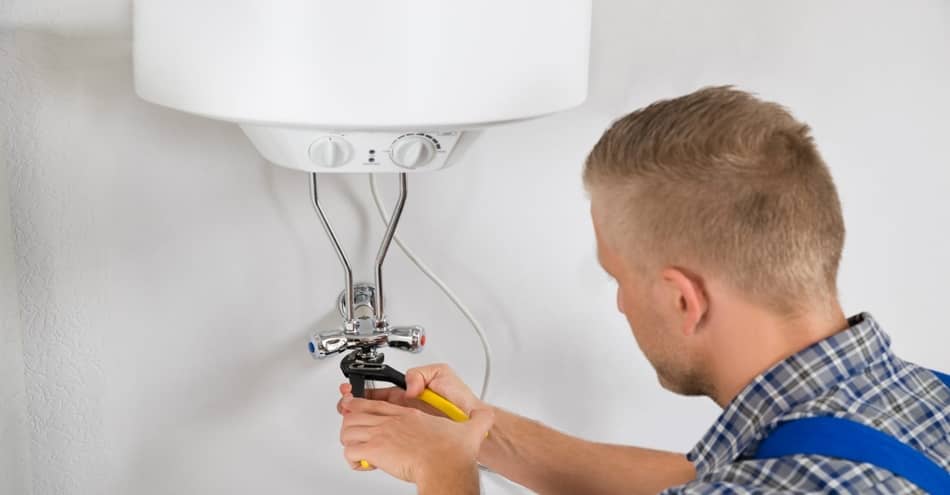
Generally speaking, a gas water heater is cheaper to operate per month than an electric model. Although natural gas prices are typically lower than the cost of electricity in most areas, you should also look at other factors, such as your unit’s efficiency, when deciding which would be best for you.
The good news is that the efficiency of your water heater depends on its Energy Factor or EF rating. The higher this number is in comparison to others, the better. For example: a hot water heater with an EF rating of around .67 will use less gas than one at 0%.
If you need to purchase another electric model for your home and are unsure what kind would be best for you, consider looking into models with EF ratings in the 90s because they’re some of the most efficient available today!
How to Keep Your Bills to a Minimum
You can do a few simple things to help save on the cost of heating your water, so start with these tips!
- Set the thermostat to lower temperatures.
- Reduce your shower time
- Get low-flow faucets & shower heads
- Use a newer and more efficient model
- Find a tank size that fits your needs
- Insulate your tank
Reducing Water Heater Electricity Usage
One way to save electricity on the water heater is by lowering its thermostat setting. Controlling it below 120 degrees Fahrenheit can reduce your energy bill significantly since you won’t have to reheat this appliance so often.
Other options include installing an insulation blanket around the tank, upgrading your old model and sticking with a unit that has been rated Energy Star compliant, or switching over entirely to a system known as instantaneous heating of water which requires no waiting time for hot showers because they are always ready when needed!
FAQ: People Also Ask
Does a hot water heater use a lot of electricity?
A tank-based hot water heater usually operates for three to five hours daily. Thus, using a 4,000-watt heater for three hours at $0.20 per kWh amounts to a daily cost of $2.40, roughly $66.50 monthly, or annually around $738.
Do electric water heaters save money?
According to the US Department of Energy, electric tankless water heaters can save homeowners approximately $44 annually. They also tend to have a longer lifespan than storage tank water heaters.
Conclusion
Your water heater can be a real drain on your electricity budget. To save on electricity costs, consider using less hot water. Invest in low-flow showerheads and faucets to reduce the cold water you use for showers or laundry; turn off your tap when brushing your teeth or shaving; take shorter showers – especially if more people are living with you than just yourself!
If your household uses a lot of electric heating during the winter months, then it is important that any old appliances be replaced as they age out so that efficiency remains high. To lower our energy usage at home, we should invest in new technologies like modernized heaters and low-flow fixtures because these devices can help us conserve both money and resources.



